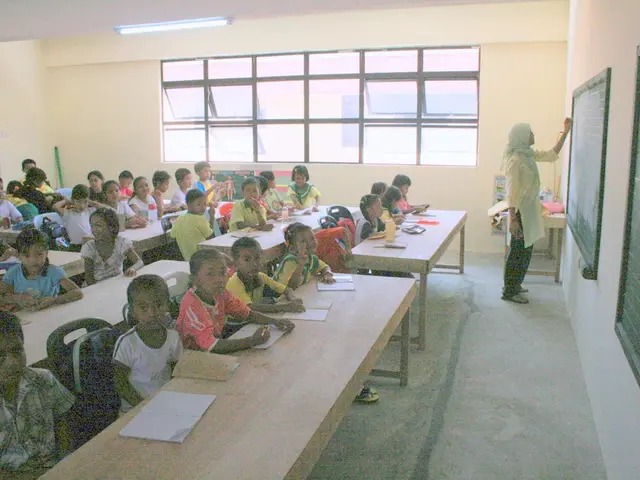Exploring the Advantages of Psychotherapy forchildren's Emotional Development
Unleashing the Power of Therapy for Kids
Guiding your little ones through life can be a daunting task, especially when it comes to their emotional and mental growth. As a parent, you'd want nothing more than for your child to thrive and bloom, and therapy can be a powerful tool to help them get there.
Let's delve into the myriad ways that engaging in therapy can be a positive step forward for your child.
Mastering Emotions
Childhood is a unique period where kids discover their individuality and learn the ropes of building relationships. This journey shapes their ability to express and manage their emotions. Professionals like the ones at CASE Psychology know their stuff, specializing in addressing emotional regulation concerns in a kid-friendly manner. They're experts at nurturing trust and creating safe spaces for kids to open up and express themselves.
Building a Fortress of Resilience
Life can toss curveballs our way, so it's crucial to learn how to tackle these hurdles early on. Therapy equips kids with the necessary tools to feel secure and ready to face whatever life throws at them. For example, speech therapy at Melbourne offers specialized support to help children develop essential communication skills. Experienced therapists empower children to forge ahead with confidence as they grow and face new challenges.
Crafting Healthy Relationships
Building lasting relationships begins in infancy, where children learn to recognize their caregivers and family members. As kids journey through their lives, they'll build friendships and participate in extracurricular activities. Although forming relationships isn't always easy, collaborating with a trained therapist equips them with the essential communication, empathy, and interpersonal skills to navigate friendship and relationships successfully.
Recognizing Red Flags
Perhaps your child is struggling to keep up with their academics, exhibiting noticeable behavioral changes, or having trouble expressing emotions. Or maybe they're having difficulty forming and maintaining friendships. Regardless of the case, consider therapy as an opportunity to equip your child with crucial communication and problem-solving tools.
At the end of the day, therapy can be a versatile tool, relevant to all ages and needs. With a licensed therapist by their side, you can prepare your child for success.
Join Our Movement
*Support Us Now*
Benefits of Therapy for Children
Therapy for children offers a plethora of benefits in several crucial areas such as emotional expression, building resilience, nourishing healthy relationships, and spotting signs of emotional distress. Here's a snippet of what's on offer:
Advantages of Therapy for Kids
1. Emotional Mastery
- Learning toIdentify and Express Emotions: Therapy teaches children to understand and articulate their feelings effectively, a crucial step for emotional growth and social interactions.
- Mastering Emotions: Therapy provides kids with the skills to manage their emotions, reducing the likelihood of acting impulsively when upset.
2. Fortress of Resilience
- Building Coping Mechanisms: Therapy equips children with strategies to cope with stress and setbacks effectively, a critical skill for navigating complex social dynamics.
- Preventing Long-term Issues: Early intervention in therapy helps reduce the risk of developing long-term psychological challenges like mood disorders and behavioral problems.
3. Healthy Relationships
- Improving Communication: Therapy empowers children to communicate their feelings clearly, leading to better understanding and communication among family members and peers.
- Developing Social Skills: Therapy aids kids in forming friendships, playing cooperatively, and resolving conflicts harmoniously.
- Fortifying Family Bonds: Family therapy strengthens trust and connection within the family, helping children become active participants in discussions and conflict resolution.
4. Emotional Distress Management
- Recognizing Triggers: Therapy helps children identify what triggers their emotions and equips them with strategies to manage these triggers.
- Employing Self-soothing Techniques: Therapy educates children to apply self-soothing strategies, reducing the risk of emotional outbursts.
All in all, therapy bestows children with the tools required to tackle emotional challenges, build meaningful relationships, and develop resilience, paving the way for their long-term well-being and success.
- In the realm of mental health, therapy can be particularly beneficial for children with autism, helping them learn how to effectively express their emotions and manage their responses to different situations.
- Science plays a pivotal role in understanding and addressing mental health concerns in children, with health-and-wellness professionals implementing evidence-based strategies in their therapy sessions to promote emotional mastery, resilience, and positive relationships.
- Apart from providing therapeutic interventions for children coping with specific mental health challenges, such as those at CASE Psychology, therapy can also proactively serve as a preventive measure for children without existing conditions, helping bolster their mental health and overall well-being.








